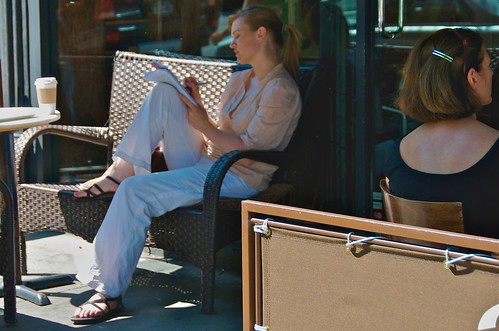Most writers have special workspaces in their homes, but how many can shift their space to suit their moods? Liu Ming, a feng shui teacher in Oakland, CA, has outfitted his loft apartment with a mobile, 8-foot cube that functions as a mediation area, study, and sleeping area. The New York Times reports:
“In feng shui, we talk about the harmony in the place that you live in,” Mr. Liu says. “The cube evolved out of wanting cozy with the option of keeping a big, open space at the same time. And we added wheels for feng shui purposes. Now that it is portable, I can spin it on an axis, I can point my head and point my desk in different compass directions for different projects. If I am writing something and feel blocked, I can get up and move the room.”
Now he’s got the writer’s attention. Does it help?
“Yeah, it does,” Mr. Liu says. “And it’s playful. […] I wanted to design the work space so that it could also turn — turn it toward the light on a sunny day, or in a different mood, turn it to the wall and meet a deadline.”
This is a beautiful solution to the writer’s eternal dilemma: face the window for inspiration, or face the wall to discourage daydreaming? Not everyone can afford—or house—a huge plywood cube, but the idea of a semi-mobile workspace is appealing: all your notes and materials just as you want them, but portable. Want to try it on a smaller scale at home? The geeks at LifeHacker have some ideas. There’s this Tetris-style portable office:

And for the minimalist, there’s always the old-fashioned portable office (see photo, top).


